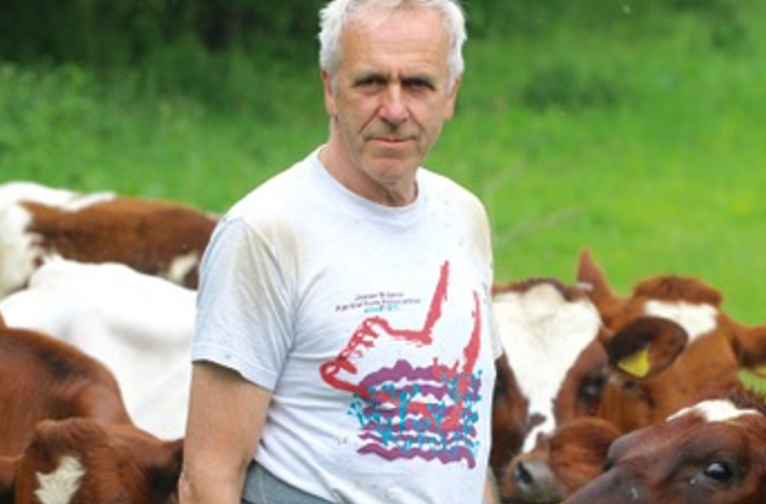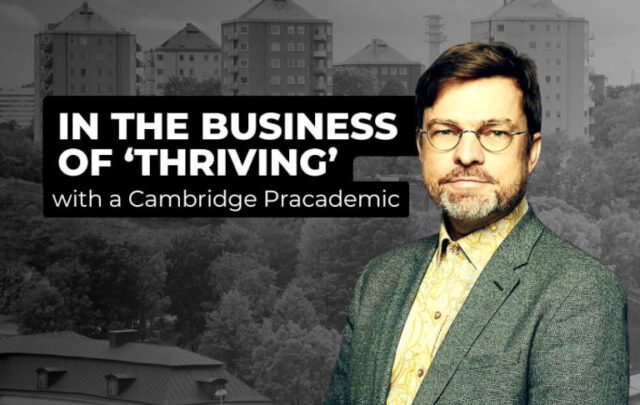If we want to make sustainable food and farming mainstream, it’s all about the money! Actually, it always was. By that I mean, unless farmers, food companies and retailers can make a profit switching to more sustainable production methods and consumers can afford sustainably produced products, the food systems transition that everyone now agrees is necessary, simply won’t happen.
If I’m right about all this, then we need to explore how influential policymakers can create the conditions where producing and consuming food in a sustainable way pays better than the current system, in which most of the food we eat comes from farms whose practices are contributing to climate change, biodiversity loss and poor public health.
In the UK, one very influential actor is Henry Dimbleby whose National Food Strategy (Part One) report was published last week. How does his report measure up to this challenge?
It has so many of the right ingredients: he’s focusing on education, improving school meals, and insisting that lower income groups have a right to high quality food. He even recognises that true cost accounting and the application of the polluter pays principle will be necessary to achieve the changes that we all agree are needed.
Unfortunately, however, his brief was to focus only on the post-farmgate restructuring challenge, while, in fact, the principal problem relates to the economic environment in which farmers throughout the world are operating right now. Most of them have become commodity slaves, providing large food companies and retailers with very cheap intensively produced raw materials to which they add value by processing and branding. Now introduce climate change, Brexit and COVID-19, the combination of which has evoked a new public interest in food production systems that are healthier, more sustainable and resilient to future shocks.
Henry Dimbleby’s report is evidence that the UK Government is responding, but the real elephant in the room is actually the absence of financial incentives for farmers to produce food in a more sustainable way. Some of those incentives will come from the market, of course, and maybe more from carbon offsetting and other ways in which big corporations can be rewarded for sustainable practices. But right now, UK farm income, and therefore profitability, is critically dependent on the so-called ‘Basic Payment Scheme’, a government hand-out which all farmers have been getting on a per acre basis regardless of the degree of sustainability of their practices. That’s going to be phased out and replaced by a new scheme – and it’s clear to me that we need to use this opportunity to redirect these payments, making them conditional on the adoption of truly sustainable practices across the whole of the farm, not just to create fringes of conservation around the edges of otherwise intensively farmed fields. But, if all this is so obvious, why hasn’t it already happened?
The surprising answer is that, in part, it is because many of the most influential environmental and conservation organisations have held back from supporting the change I am advocating, as I discussed with the environmental campaigner and writer, Jonathon Porritt, last week in a podcast which will be posted next week. Jonathon and I were both born in 1950, and he has witnessed the same changes in agriculture with the arrival of industrialised food systems as I have. He has been on the environmentalist side of the fence, whereas I have been more rooted in farming and food, although clearly with major environmental leanings.
When I first started farming, almost 50 years ago, it soon became clear that making a profit through sustainable farming was very difficult, hence my involvement with the development of organic standards which, put very simply, justified a premium on food produced in a more sustainable way.
Those of us who developed the standards, set about creating an alternative market system, and arguably the project has been an enormous success, albeit more so in some European countries than the UK, where up to 20% market shares have been achieved. In the UK, this didn’t happen and, in my opinion, part of the reason for the slow growth of the organic market was the failure of conservation and green groups to lend their weight to the organic cause. Why were they not more supportive?
I think it is because they didn’t have the experience and therefore the confidence to trust that organic methods would be technically successful and thought those of us at the Soil Association who were advocating radical change were worthy and well meaning, but that in the real world, commercial farmers were always going to continue using fertilisers, pesticides and other intensive practices in order to feed the world and make a living. In a funny way, they weren’t entirely wrong. Ironically it was their tacit endorsement of conventional farming that played a significant role in holding back the transition to more sustainable methods. And it is they who lent their weight to the separation of food production from nature, a situation which has been enshrined in agricultural policy and has been in place for the last 40 years or so. In the podcast, I asked Jonathon whether he agreed with the position that the environmental NGOs had taken, and I had to be quite persistent in getting him to answer the question. Did he agree with the position those environmentalists took? You’ll need to listen to the podcast to hear his response!
So there you have it, the truth is the organic movement lost the argument with the conservation bodies and as a result, throughout the last 40 years, sustainable agriculture has been relatively marginalised, relying on a niche premium market to remain viable. It has remained profitable, but for most of the time it has been more profitable for the 90% of farmers who have not switched to organic methods and continued to use relatively intensive farming methods to produce food, passing costs to the environment, climate change and public health in ways that have not been accounted for in the bottom line. Most food production has been a mining operation, extracting the last remnants of natural and human capital from nature’s bank, while also causing diffuse pollution from fertilisers and pesticides. But don’t blame the farmers, they were simply following the best business case, in a policy framework set by the Government, albeit within the broader framework of the Common Agricultural Policy.
Essentially, we have a dishonest food pricing system and if this was corrected, sustainable farming methods would more than hold their own economically. Farmers, in general, aren’t getting much support from retailers either to help them become more sustainable. The exceptions are the fortunate entrepreneurial few who have switched to organic farming and are selling food with a story and adding value through processing.
But very few of even these farmers could have managed with the Basic Payment Scheme, the social security cheque, of around £80 per acre, more or less free of conditions, which has just about enabled them to survive in this hostile economic environment. So poor are the returns from the marketplace that net farm incomes on average in the UK, equate to little more that the Basic Payment for most farmers, except for intensive pig, poultry and horticulture farms.
The problem, as I see it, is that the Government has taken the opportunity of Brexit to make a dramatic change and swing the pendulum too far in the opposite direction, urged on strongly, I have to say, by well-meaning but poorly-informed conservation organisations that know little about the practicalities of food production. Superficially, the Government’s determination only to reward environmental outcomes and not the production of food may sound good on paper, but in reality, it is likely to result in increased intensification on some farms and the abandonment of food production on the rest. Right now, the indications coming from Defra are not encouraging. The current proposed approach to ELMs (Environmental Land Management scheme) payments is to divide the money into three, with a third going for foundation level good environmental practice, and two other tiers rewarding specific environmental projects and money for other measures, such as reforestation and new technological solutions to reduce pollution.
If the ELMs cake is divided into three in this way with equal levels of support for each tier, this would mean that farmers adopting more sustainable practices would only get a third of £80, in other words just under £27 per acre, nowhere near enough to persuade them to make radical changes to their farming systems – and it is radical changes that we need! We are talking here about weaning the farming community off its current dependence on agrochemical fertilisers and pesticides, switching to mixed rotational farming to build fertility through a system which includes grass, clover and other leguminous forage crops and the reintroduction of sustainably managed livestock where appropriate. If that sounds too radical to you, I would just point out that no one has yet come up with a way of restoring degraded soils to health, while producing food at the same time, that does not involve grass, forage legumes and grazing animals. In other words, the creation of a system of food production which works in harmony with nature, where biodiversity can coexist with, rather than be separate from, food production. To achieve changes that are this radical, variously described as agroecological, regenerative, sustainable, organic, biodynamic – choose your term – requires a sustained period of investment, re-skilling, and yes, money. Unfortunately, the penny doesn’t yet seemed to have dropped in Government circles that this is the only way we can develop resilient food systems and food security while also promoting public health through the provision of vital nutritious food.
Instead Defra is sitting on the fence, mouthing platitudes about technical innovation, still hanging on to the concept of stewardship and paying too much heed to the conservation organisations and the Treasury – the latter of which would willingly sacrifice thousands of small family farms on the altar of free trade with America.
So, I’ll end with a message to Henry Dimbleby, well done on the National Food Strategy so far, but now set your sights on ensuring that ELMs makes it financially possible for farmers to produce the healthy food the nation needs and deserves, in a truly sustainable way.





